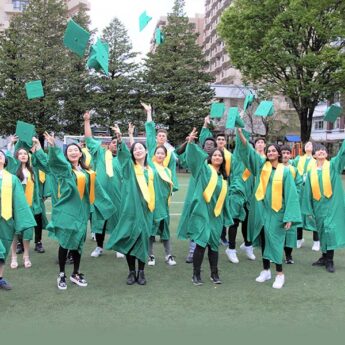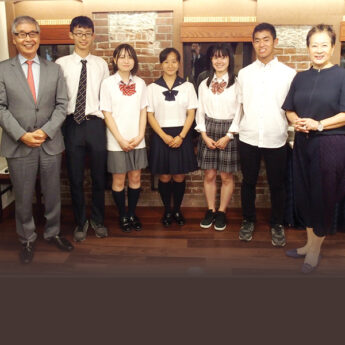Inward-looking attitude must be rectified to train future leaders
• Huge imbalance in number of outbound vs. inbound study abroad students
• UK students, faculty highly globalised
• Now 33% fewer Japanese studying in Britain
Education around the world is facing an unprecedented set of challenges, given the globalisation of economies and rapid changes in technology and work patterns.
What are the implications for education? What kind of reforms are required?
These were the basic questions raised at “Supporting Reform in Education”, a 4 October symposium conducted by the British Council Japan at the British Embassy Tokyo.
“Educational systems around the world are struggling to adjust to the needs of society”, Rosamund Marshall, a member of the Board of Trustees of the British Council, told the audience. “This task is one of the great challenges facing both our countries”.
A major theme of the event was explaining how London can assist Tokyo in tackling this issue, which in Japan seems particularly acute given the current education environment.
For decades, the education system here did an exemplary job of turning out students proficient in maths, science and other subjects that met the needs of the domestic labour market. But now, Japan finds itself in need of workers who can function effectively in international settings.
At the symposium, Tsutomu Kimura, an adviser to the Ministry of Education, Culture, Sports, Science and Technology (MEXT), highlighted the massive imbalance between the number of foreign students in Japan and Japanese students studying overseas.
Recent years have seen an explosion in the number of foreign students coming here. The 2012 figure was about 137,000, a steep rise from 10,000 in 1983.
Kimura said that generous assistance from the government—around ¥80.7bn a year—is a major reason for such growth.
The situation among overseas-bound Japanese students, however, is the opposite. The number of these students is falling, having peaked in 2004 at around 83,000, only to have shrunk to about 60,000 now.
Britain currently hosts around 4,000 Japanese students, some 2,000 less than the peak figure.
Kimura cited an opinion poll conducted by The University of Tokyo on the specific reasons behind the decline. The main concerns cited by the approximately 1,600 students polled were problems with finding work after returning to Japan, financial barriers and language, specifically the ability to understand professors overseas.
“We have to improve this inward-looking attitude”, Kimura said.
“Britain has a great deal of experience and expertise in training teachers of English”, Marshall said, referring to a future programme in which the British Council will help MEXT develop a new training model for teachers of English in Japan.
“Additionally, the UK’s educational sector is one of the most internationalised in the world”, he said, pointing out that 18% of students in higher education there come from overseas, while more than a quarter of the faculty are from outside Europe.
In another presentation, Barry O’Sullivan, an expert on testing and assessment, gave a “short lesson” in his field.
A professor of applied linguistics at Roehampton University, London, O’Sullivan stressed the complexity and importance of creating and applying tests in educational settings.
“Making a test is not something you do in a very short time”, O’Sullivan said. “[It] takes a lot of research and understanding by a lot of people. You need a lot of cooperation and people working on the project”.
Later in the symposium, Hiromi Nagao, president of Hiroshima Jogakuin University, spoke about a programme at her institution that brings together young women from around the world, the HJU Global Studies Peace and Leadership Summer Seminar.
“Our students coordinated things and took care of the orientation, explaining the facilities, and so on”, Nagao said.
The symposium ended on a scholarly note, courtesy of speaker Yasunari Takada, a professor of Transcultural Studies at The University of Tokyo and formerly a British Council Scholar at Cambridge University.
In polished English, Takada explained the contrast between Japan and Britain concerning foreign-language education.
In a nutshell, historical circumstances allowed Britain to rely solely on its own language to conduct its affairs. In Japan, however, knowledge of the lingua franca (English) is now imperative for the country to play an active role on the world stage.
“Japan has somehow contracted the habit of closing in on itself, that is, the propensity for seclusion”, Takada said.





